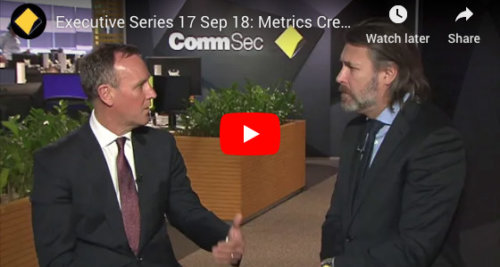Sustainability in private markets
Metrics look at the increasing role that ESG is playing in private markets and provide some insights into how to factor sustainability into investment decisions.
Investor focus on sustainability and ESG (environmental, social, governance) factors has reached unprecedented levels and its impact on choosing where to invest is accelerating. COVID-19 turned the spotlight on sustainability by highlighting social and business challenges, while international agreements on CO2 emissions and the release of the “Code Red for Humanity” report from the Inter-Governmental Panel on Climate Change gave added urgency to the challenge of addressing global warming by reducing carbon emissions.
The Responsible Investment Association Australia’s (RIAA) Responsible Investment Benchmark Report Australia 2021 highlights the growing pace at which capital is shifting towards funds demonstrating leading responsible investment practices. Australian Responsible Investment assets under management rose by $298 billion to $1,281 billion in 2020. The proportion of Responsible Investment AUM to Total Managed Funds was 40% in 2020, up from 31% in 2019.
The challenge of addressing sustainability falls squarely on the shoulders of fund managers who are the medium between the asset owners and the companies who must adapt their businesses. And with the growing volume of investor capital, has come increasingly diverse asset classes that can address those challenges.
Change began with listed equities, where there is a large amount of public data and benchmarks against which companies can be measured. However, it is now becoming a whole of portfolio issue as investors press to ensure that ESG factors are integrated into all asset classes, including private debt and private equity.
Let’s look at what investors need to consider when choosing a private debt manager who can help them achieve their sustainability goals.
Private debt managers face greater challenges in gathering and measuring information on ESG practices and performance because the companies to which they lend are private. Even if a company has well established practices, there can be difficulties in benchmarking that performance because their peer group are also private companies.
This has led private debt providers to devote more resources to understanding the ESG performance of borrowers. Fortunately, established due diligence practices can be readily adapted to include this and the heightened focus on ESG allows lenders like Metrics Credit Partners to engage even more deeply with borrowers to understand the risks and opportunities their businesses face. It is the start of a conversation with management about key issues that continues throughout the life of the transaction and allows challenges to be addressed as they arise.
Established due diligence practices are a good start. But to have a meaningful role in helping borrowers transition to long-term sustainability goals and deliver for investors, requires a whole-of-organisation commitment from the lender.
- It starts with the Board, which sets the policies and strategic direction that must be delivered by management, the investment committee and dedicated teams supporting the business units to integrate ESG factors into the investment process.
- Having a robust ESG policy to guide the firm is vital. It directs action and provides transparency and accountability for investors, customers and employees alike.
- International commitments can play a similar role. For example, Metrics recently became the first non-bank asset manager in Australia to join the Climate Bonds Initiative which develops the standard used to help investors identify investments that are consistent with the goal of the Paris Climate Agreement to limit global warming to under 2 degrees Celsius.
- In-house practices aimed at reducing the managers own carbon footprint are also a worthwhile contribution to the challenges of climate change. By embracing the recommendations of the Taskforce on Climate-related Financial Disclosures, firms send an important signal to the broader market.
Scale is an important consideration in being able to deliver sustainability goals. Larger private debt providers have the resources in-house to engage specialist skills, develop policies and practices that can be used to help assess lending opportunities against sustainability criteria and to assist existing borrowers as they make the transition. That scale also allows the manager to effect change through its own policies and practices across a bigger and more diverse portfolio of industries and companies and apply the lessons from one borrower to another.
Sustainability is quickly coming to be at the heart of private debt markets and perhaps most importantly it is now being framed not just in terms of risk, but increasingly as an opportunity for anyone concerned with the best long-term interests of their investors. A Deloitte survey in late 2020 found that if climate change goes unchecked, Australia’s economy will be 6% smaller and have 880,000 fewer jobs by 2070. That’s a $3.4 trillion lost opportunity over the next half a century. However, there is a $680 billion dividend that is ours for the taking if we do rise to this environmental challenge, along with 250,000 more jobs, the study argued.
More recently the Business Council of Australia has thrown its weight behind more ambitious targets for carbon reduction. It advocated raising the emissions reduction target from 26%-28% below 2005 levels, to between 46% and 50%, arguing there would be an $890 billion boost to economic activity and 195,000 jobs created by 2050 from such a move.
Private debt providers’ approach to sustainability is evolving with developments in regulation, climate change and societal expectations. Systems and processes are being upgraded to collect high-quality data that will help measure progress and deliver transparent sustainability reporting for all stakeholders. Investors should expect to see more detailed and better organised information about how private debt managers and borrowers are working toward the achievement of those goals in the near future.
Environmental issues have been a major driver of the growing investor tide in favour of ESG because of both the immediacy of the issues that need to be addressed and the availability of data to measure progress in addressing it. That said, the COVID-19 pandemic has highlighted social issues that need to be addressed and are increasingly on the radar of investors, including the disproportionate effects of lockdowns on young people and on workers whose jobs could not be done from home.
Addressing those concerns is becoming a mainstream project for companies who want to better reflect the wishes of their customers, investors, employees and partners for a fair, equitable and sustainable society.
By articulating and demonstrating a commitment to sustainability, private debt providers can show leadership, increase the impact of what they do to address these challenges and provide transparency to their stakeholders.
Authors: Andrew Lockhart, Managing Partner at Metrics Credit Partners and Alison Chan, Investment Director – Sustainable Finance, Metrics Credit Partners.
Other News
Metrics Income Opportunities Trust (ASX: MOT) | Investor Information
Metrics Income Opportunities Trust: income today with upside potential Metrics Credit Partners CEO and Managing Partner Andrew Lockhart recently spoke…
Metrics Master Income Trust (ASX: MXT) | Investor Information
Metrics Master Income Trust (ASX: MXT): disciplined income through diversified corporate lending Metrics Credit Partners CEO and Managing Partner Andrew…
INSIGHTS
MCP Income Opportunities Trust (MOT) lists on ASX
Sydney, 29 April 2019: The Trust Company (RE Services) Limited (ABN 45 003 278 831) (Responsible Entity) is the responsible…
MCP Master Income Trust wins Lonsec Listed Fund Award
The award came a year after MXT was listed on the Australian Securities Exchange





